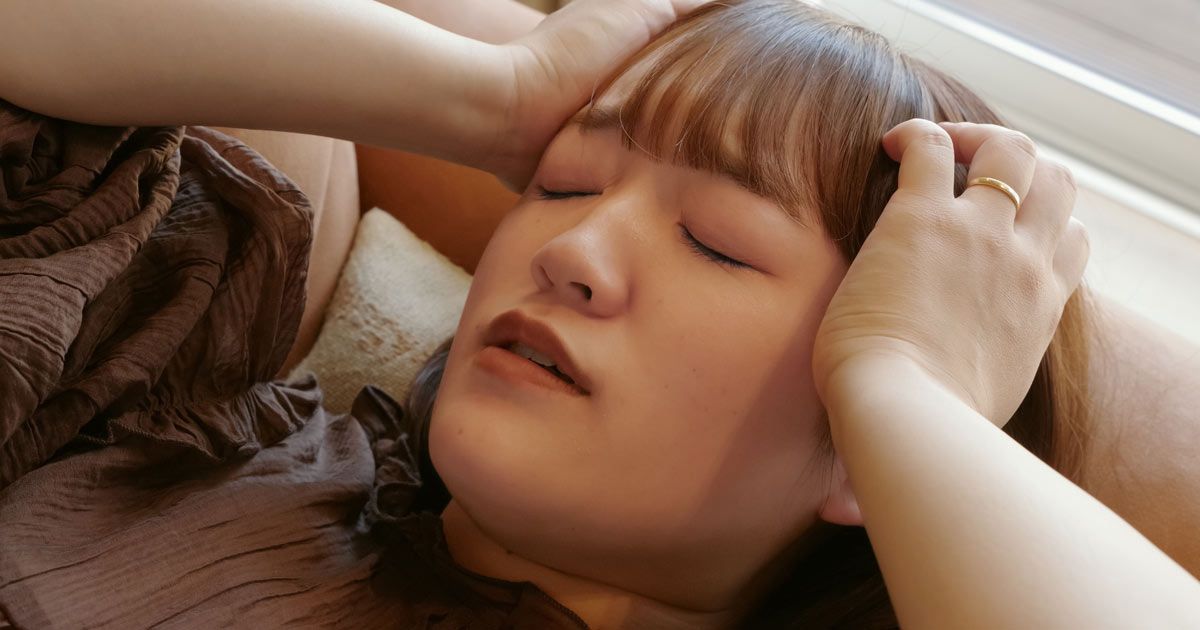PMDD Treatments NYC - Dr. John Salerno

Premenstrual Dysphoric Disorder Medical Treatments by Salerno Wellness in Manhattan, NY and Connecticut
I understand how exhausting it can feel to live with premenstrual dysphoric disorder. The mood swings, physical discomfort, and disruption to your daily life are burdens that no one should face alone. At my practice, I approach PMDD with comprehensive, integrative, and functional treatments to address the root causes of your symptoms. Together, we’ll design a tailored plan that focuses on improving not just your physical health but also your overall well-being.
-Dr. John Salerno
Premenstrual Dysphoric Disorder?
Premenstrual dysphoric disorder, or PMDD, is a severe form of premenstrual syndrome (PMS) that significantly disrupts a person’s quality of life. While PMS might involve mild physical or emotional symptoms, PMDD affects approximately 5–10% of individuals assigned female at birth and leads to intense emotional and physical challenges during the luteal phase of the menstrual cycle (one to two weeks before menstruation).
Symptoms like severe irritability, anxiety, depression, and physical pain are hallmarks of PMDD. The condition is believed to be caused by heightened sensitivity to the hormonal shifts of the menstrual cycle and impacts neurotransmitter functioning, particularly serotonin. If left unmanaged, PMDD can profoundly affect daily activities, relationships, and mental health, making effective and tailored treatment essential.

Christina Rosiello, Nurse Practitioner
Christina Rosiello, our Nurse Practitioner has been working with Dr. John Salerno for many years. Christina is knowledgeable and experienced in all of Dr. Salerno's integrative and functional medical care techniques and has quickly become a patient favorite. Although well versed in all aspects of Salerno Wellness care, Christina is especially sought out by patients who may feel more comfortable with a woman as it pertains to female health issues such as PDMM, PMS, or any other hormonal or health issue. Contact us to learn more about scheduling an appointment with Christine.
Common PMDD Symptoms
PMDD symptoms can vary widely in severity and presentation. They often intensify in the days before menstruation and alleviate as the period begins. Here are some common symptoms my patients experience:
- Severe Mood Swings - Intense changes in mood, including anger, frustration, and episodes of tearfulness, are major markers of PMDD. These shifts often strain personal and professional relationships.
- Depression or Anxiety - Many individuals with PMDD feel overwhelming sadness, hopelessness, or heightened anxiety during their luteal phase. Unlike typical situational sadness, these emotions often seem disproportionate or difficult to manage.
- Irritability - Restless and easily frustrated, this hallmark symptom can create barriers in communication and impede productivity at work or home.
- Physical Discomfort - PMDD often brings physical symptoms such as headaches, breast tenderness, muscle aches, bloating, or cramping. These issues make ordinary activities harder and may even elevate to unbearable levels.
- Sleep Problems - From insomnia to excessive sleep, disrupted sleep patterns are a common complaint. Proper rest becomes an elusive luxury.

Common Causes of PMDD
PMDD doesn’t have a single identifiable cause, but research points to several interacting factors. Sensitivity to normal hormonal changes, especially estrogen and progesterone fluctuations, is at the core of the condition. This heightened sensitivity disrupts serotonin neurotransmission, a critical regulator of mood and behavior.
Genetics may also play a role; individuals with a family history of mood disorders or PMDD are more likely to be affected. Stress is another significant trigger that can intensify symptoms. Nutritional deficiencies, particularly in magnesium and vitamin B6, have also been linked to PMDD. Finally, preexisting medical or mental health conditions, such as major depressive disorder or generalized anxiety, may amplify PMDD’s severity.
Related Medical Conditions That Can Be Treated
Living with PMDD often means managing coexisting conditions. Commonly associated conditions include:
- Depression and Anxiety Disorders - Individuals with existing mood disorders often report exacerbated symptoms during PMDD episodes, making a dual-approach treatment essential.
- Thyroid Dysfunction - Hormonal imbalances in the thyroid can intensify mood and physical symptoms, complicating PMDD management. Treatments for thyroid health can often provide additional relief.
- Chronic Fatigue Syndrome - Persistent fatigue can worsen PMDD symptoms, and treating this condition alongside PMDD ensures a more balanced care approach.
Candidates for PMDD Treatment by Dr. John Salerno
Anyone experiencing severe symptoms that interfere with their daily life may be a candidate for PMDD treatment. If you find that your emotions seem overwhelming or out of proportion during certain phases of your menstrual cycle, or if you struggle to function at work, home, or in social situations, you could benefit from professional care. Treatment is particularly important if PMDD contributes to deteriorating relationships, decreased quality of sleep, or unmanaged physical discomfort. Patients who have tried self-help techniques, such as dietary adjustments, exercise, or stress management, without success should also seek comprehensive treatment. Additionally, anyone with a history of mood disorders, such as depression or bipolar disorder, may need specialized guidance, as PMDD symptoms can worsen preexisting conditions.
When I treat PMDD, my goal is to go beyond symptom management. I offer a combination of evidence-based integrative and functional medicine solutions, balancing the body and mind while addressing the root cause of symptoms. For many patients, this begins with a thorough consultation and diagnostic testing to evaluate hormone levels, nutritional profile, gut health, and overall wellness. Based on these findings, I design a personalized care regimen that may include dietary planning, targeted supplements, and lifestyle coaching. Bioidentical hormone replacement therapy (BHRT) is a valuable tool in restoring hormonal balance safely and effectively. Stress-reduction techniques and complementary therapies further support mood stabilization.
Possible Side Effects of Treatment
While PMDD treatments are generally well-tolerated, some patients may experience mild side effects depending on the therapies. Adjusting to bioidentical hormone replacement may cause temporary bloating or breast tenderness. Nutritional supplements can sometimes lead to mild digestive issues, such as nausea. Stress-reduction practices may seem awkward or uncomfortable initially, but most patients adapt quickly.
What Can Happen if PMDD is Left Untreated
Ignoring PMDD can have significant consequences. Left unmanaged, the condition may erode relationships, challenge job performance, and diminish self-esteem over time. Untreated symptoms can also increase the risk of mood disorders, such as depression or generalized anxiety disorder.
Why Patients Choose Dr. John Salerno
My patients choose me for a reason: trust and results. By using root-cause-focused treatments, I offer individuals relief and renewed vitality others often fail to reach. I believe in empowering my patients with knowledge and personalized care. By combining advanced diagnostic tools with holistic therapies, I create customized treatment plans tailored to each individual’s unique needs. My approach addresses not only symptoms but also the underlying causes of health issues, ensuring long-lasting improvement rather than temporary relief. With a commitment to excellence and a passion for patient well-being, I strive to help every individual achieve optimal health and a vibrant life.
PMDD Treatment NYC Case Study
Jessica, 31, arrived at my office depleted and overwhelmed. Jessica trusted the path, anchored by science. Through a thorough assessment, we discovered that Jessica was experiencing chronic fatigue due to a combination of hormonal imbalances and nutritional deficiencies. Together, we crafted a personalized plan that included dietary modifications, targeted supplementation, and stress management techniques. Over the course of three months, Jessica noticed remarkable improvements in her energy levels, mood, and overall vitality. By addressing the root causes of her symptoms, Jessica was able to regain control of her health and embrace a more balanced, fulfilling lifestyle. Her transformation is a testament to the power of holistic, individualized care.
Inspired by Jessica's success, many others have sought similar approaches to improve their well-being. The key to these transformations lies in understanding that every individual's health journey is unique. By addressing not only physical symptoms but also considering emotional and lifestyle factors, this holistic method empowers individuals to take an active role in their health. Small, consistent changes can lead to profound, lasting results, proving that true wellness is achievable with the right guidance and determination.
Contact Dr. John Salerno For A Consultation on PMDD Tre3atments in NYC and Connecticut
Early Intervention Matters! Premenstrual Dysphoric Disorder (PMDD) can significantly impact daily life, relationships, and overall well-being if left unaddressed. Early recognition and intervention are crucial in managing symptoms effectively and preventing them from escalating. By seeking professional guidance, individuals can explore personalized treatment options, develop coping strategies, and regain a sense of control over their health and happiness.
Take the First Step. If you're experiencing symptoms of PMDD, don't wait to take action. Reach out to our team at Manhattan NYC for compassionate care and expert support. Together, we can work towards a brighter, healthier future tailored to your needs.
Please contact us today.
Additional References
- Premenstrual Dysphoric Disorder (PMDD) - Office on Women's Health (U.S. Department of Health & Human Services)



